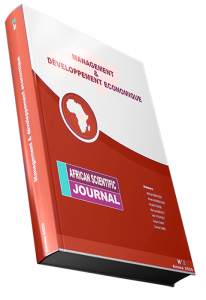Résumé : Il est indéniable que la qualité d’un plaidoyer dépend, en premier, de la capacité de ses teneurs à convaincre, à se « battre » jusqu’au bout, pour faire valoir leurs positions, pour faire adhérer leurs détracteurs. Ce constat est encore plus vra
DOI:
https://doi.org/10.5281/zenodo.6824706Keywords:
labor code, labor relations, trade union, employee representative profilsAbstract
It is undeniable that the quality of an advocacy depends on the one hand, on the capacity of its supporters to convince, to «struggle», to affirm their positions, to involve their detractors. This observation is even more true if we are in the logic of the labor relationship, this «antagonistic» relationship between a labor force, which claims more recognition for the use-value it produces, and what the capitalist appreciates in it, what he puts into it, what he supposes to be able to use, in this force, to realize his surplus-value. In Morocco, following the advent of labor law in 2003 a new social dynamic emerged, creating new forms of regulation of social relations in productive spheres. This balance of power, makes and breaks the equilibrium, redefines, sometimes even in the opposite direction, the rights and the obligations of each part of the wage relationship.
Consequently, it is particularly interesting to consider the quality of the institutions participating in this "negotiation". This article aims at analyzing the evolution of institutions charged with defending the interests of employees according to what the Moroccan law (labor law) defines. we are of the mind of the institution of employee delegates and the institution of union representation. We want to learn how this institution has evolved over a decade (or more) following the establishment of this new regulatory framework for industrial relations. We take a confirmatory approach that defines a positivist epistemological positioning (Henning, Van Rensburg and Smit, 2004, p. 17). The stakeholder theory is our corpus. we agree.to position ourselves in a “neo-institutional” vision. this vision tries to understand productive organizations, which are institutions made up of a set of contracts. Fashion of reasoning is the deduction. we will use the official databases in this area to explain the causal relationship between the new framework for regulating industrial relations in the company in Morocco and the emergence of a form of «technocracy». the latter has the objective of establishing power in favor of the labor force, in the sense of a stakeholder as proposed by Freeman (1984). Freeman defines a stakeholder as “any individual or group that may affect or be affected by the achievement of the organization’s objectives”.
We have noted that this institution has generally been able to make a quantitative and qualitative place for itself to act on social dialogue. when it has a trade union membership, it remains contrasted by the membership of one central or another.
Downloads
Published
How to Cite
Issue
Section
License
Copyright (c) 2022 African Scientific Journal

This work is licensed under a Creative Commons Attribution-NonCommercial-NoDerivatives 4.0 International License.





















